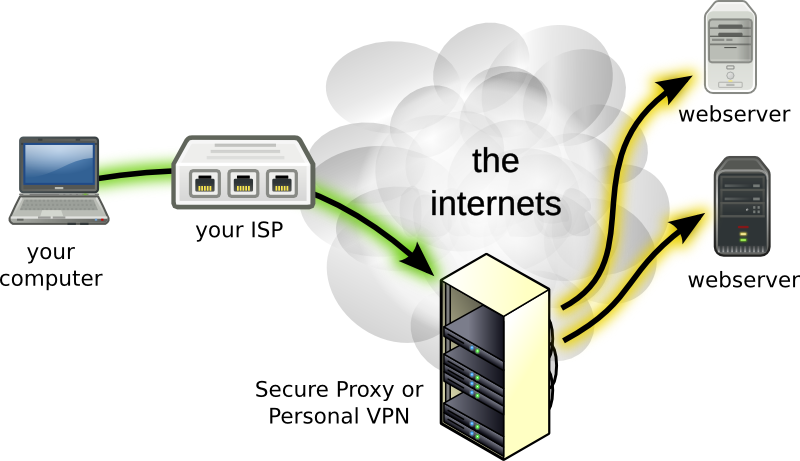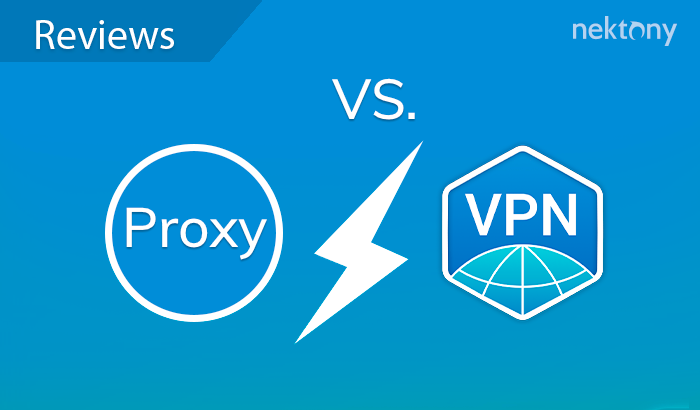Featured
Table of Contents
Proxy Vs Vpn: What's The Difference? Privacy, Security And ...
SOCKS5 is not the exact same as a VPN. Rather, SOCKS5 is a type of proxy server that's typically utilized for online gaming, sharing files or video chatting on a single website or app. VPNs, on the other hand, secure all web activity across all sites and apps.
For this factor, some users pay for a personal proxy server which limits the variety of users that access it, speeding up your connections. Proxies are likewise vulnerable to security exploits: they can be open to attack, enabling the bad guys to infiltrate networks or take personal information. Some proxies can still track (and store) your surfing routines, in addition to tape-recording usernames and passwords rendering that pledge of privacy null.
VPNs utilize a regional client to create the connection to the VPN server, so any local CPU or memory issues will slow down the connections. VPNs are generally more costly to use (and maintain) than a proxy server, and they are typically more intricate to handle. Much like proxy servers, VPNs can't ensure anonymity while searching.
A VPN only ensures an end-to-end encrypted connection if you use the HTTPS procedure when you go to a new web address. Your data will be secured to the VPN, but from that point on, it could be unencrypted to the web server. For some websites, this might be irrelevant: an information-only web page with no login or payment options for instance, but for any websites that need a login or online payments or any sensitive data make sure the website is allowed to use HTTPS.
What Is The Difference Between A Vpn And A Proxy For ...
The greatest argument to use a VPN rather of a proxy is the overall encryption for all traffic you get with the VPN. Dollar for dollar, a VPN is more protected than a similarly priced proxy. VPN service providers maintain their own networks and you use their IP addresses for your connections.
Privacy and security matter these days, no matter if it's your business information or your own personal information you need to protect. Make sure you're investing time and cash into the appropriate tools for your security objectives: both proxies and VPNs include an extra layer of security and personal privacy to your information.

If your concerns are more around "what sites are my users striking," a proxy server is a much better tool. To get one of the most bang for the buck (and to safeguard your data as a security-aware person), sign up for a well-regarded VPN service. For the a lot of part, VPN services permit you to utilize servers in different places to work around content limitations.

If you're concerned about your personal privacy when utilizing the internet, you might have thought about utilizing either a VPN or a proxy server. Both increase the security of your web connection, however how precisely do they work, and how do they differ? If you are aiming to improve your online privacy, it's crucial to comprehend the difference in between VPNs and proxy servers to make certain you're picking the best tool for the job.
Proxy Vs Vpn – Important Differences In 2023
How they accomplish that and the degree to which they offer other personal privacy functions varies significantly. Generally, when web surfing, your computer links to a site straight and begins downloading pages for you to check out. This process is simple. When you utilize a proxy server, your computer sends out all web traffic to the proxy.
VPNs work on the operating system level. This implies that they redirect all your traffic, whether coming from your web browser or an app. They likewise secure traffic in between the web and your device. As an outcome, your Web Service Supplier (ISP) can't see what you're doing online simply that you're connected to a VPN server.


While speeds vary from service provider to service provider, VPNs are normally the much faster option. It isn't a great concept to utilize a complimentary VPN service since they are limited in what they can use and tend to mine your data. As a result, users tend to select paid-for VPNs, which provide higher information file encryption and are more secure.
This indicates that, in general, VPNs tend to be the more costly alternative. VPNs work on the os level and reroute all your traffic through a VPN server, while proxies deal with the application level and just reroute the traffic of a specific app or web browser. This means that VPNs encrypt all web activity, regardless of site or app, while proxy servers just conceal one website or app at a time.
What Is The Difference Between Vpn And Proxy Traffic ...
Proxy servers aren't simply used to unlock certain websites. Particular organizations companies, schools, or libraries or perhaps moms and dads may want to set up a transparent proxy to block or filter users' material when utilizing the internet.
Table of Contents
Latest Posts
Best Vpn Services Of 2023 - Four Industry Leaders To ...
The 6 Best Vpn Stocks To Buy Right Now For August 2023
Best Vpn For Mobile 2023: Staying Safe On Android And Ios
More
Latest Posts
Best Vpn Services Of 2023 - Four Industry Leaders To ...
The 6 Best Vpn Stocks To Buy Right Now For August 2023
Best Vpn For Mobile 2023: Staying Safe On Android And Ios